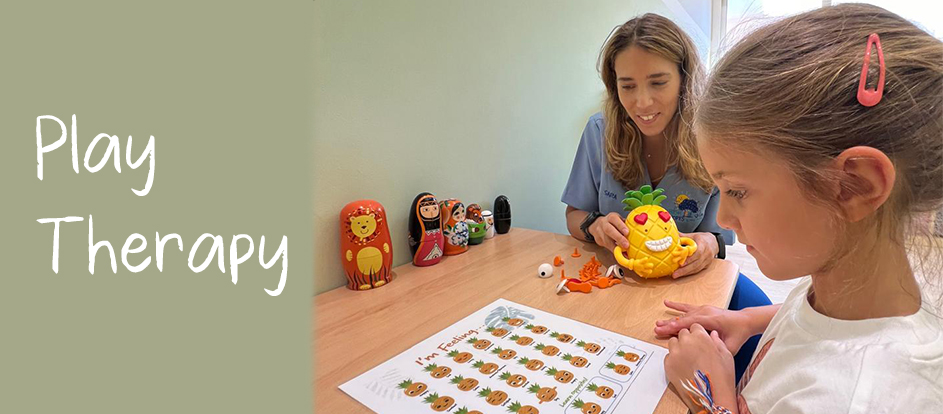
Children today play less than previous generations, and this shift has significant implications for their overall development. Play is more than just fun and games as it’s a vital part of their development. According to the United Nations Convention on the Rights of the Child (Article 31), play is a fundamental right of every child.
Through play, children learn about themselves and their world, they express their emotions, and they develop essential life skills.
With the advancement of technology, screen time has become a dominant activity, often replacing traditional play. Tablets, smartphones, and video games are more accessible and engaging. As a consequence, this has led children to spending more time indoors.
The reduction in physical playtime is highly concerning as it limits opportunities for physical exercise, social interaction, and imaginative play, which are crucial for children’s holistic development.
Outdoor play areas have also suffered significant changes over the years, marking a decline in the number of outdoor play areas and the number of activities provided; a decline influenced by various factors, including urbanization and safety concerns. Many parents fear letting their children play outside unsupervised due to fears of accidents or abductions, even in safe neighborhoods. Additionally, increased structured activities and enormous educational pressures has left children with less time for spontaneous and free play. This lack of exposure to nature and open spaces, and reduction in movement can impact children’s physical health, emotional well-being, and ability to manage life events.
The world is changing rapidly, and children are growing up in environments different from previous generations. This complex landscape can be challenging for young minds to navigate.
Accelerated change often means that children must adapt quickly to new technologies and societal norms, which can be overwhelming and difficult for a developing brain to handle.
These become even more complex and difficult if we consider children dealing with unique challenges such as neurodiversity, different abilities, family changes (for example, divorce and death or sickness of a family member), moving to another country, and so much more.
Given these shifts, children require more emotional support than ever before. Parents, educators, and communities must be more attuned to children’s emotional needs and provide them with the tools and resources to build resilience.
As children navigate all these challenges, parents and teachers frequently find themselves hopeless in effectively addressing the child’s behavior and emotional difficulties. In such circumstances, support would be invaluable. Such support comes in the form of Play Therapy which creates a safe environment for children to express themselves and their feelings. This helps them navigate the complex needs of the modern world, prioritize their emotional well-being, and foster support for parents.
Understanding Play Therapy
Play Therapy is a psychotherapy approach primarily used with children and teens to help them express their feelings, process experiences, and develop coping mechanisms in a safe and supportive environment. Unlike adults, children often struggle to articulate their thoughts and emotions through words solely as their brains are fully developed in their early twenties. Play Therapy leverages the natural way children communicate through play to facilitate emotional and psychological healing, providing a sense of overall well-being.
The Mechanics of Play Therapy
A trained play therapist uses toys, games, art materials, movement, therapeutic stories, puppets, and other play activities to create a comfortable and engaging setting. This environment encourages children to express themselves freely. The therapist observes and interacts with the child through special techniques, gaining insights into their inner world and helping them address issues such as, but not limited to, anxiety, depression, trauma, behavioral problems and family conflicts.
There are two main types of Play Therapy: directive and non-directive. In directive Play Therapy, the therapist takes a more active role in guiding the child’s play to address specific issues. In non-directive Play Therapy, also known as child-centered Play Therapy, the child leads the play, and the therapist follows, providing support and interpretation as needed.
What are the Benefits of Play Therapy
Emotional Expression
Play Therapy provides children with a safe outlet to express complex emotions they might not yet have the vocabulary to describe. Play allows children to process traumas, anger, sadness, fear, and confusion.
Problem-Solving Skills
Playing allows children to experiment with different scenarios and outcomes, helping them develop critical thinking and problem-solving skills.
Enhanced Communication
As children express themselves through play, they communicate their thoughts and feelings better, which can translate into improved interactions with peers, family members, and teachers.
Social Skills Development
Through play with therapists or peers, children learn important social skills, such as sharing, taking turns, and empathy. Play Therapy can improve a child’s ability to form and maintain healthy relationships.
Behavioral Improvement
Play Therapy can help release unconscious memories and feelings; your child’s behavior will naturally settle down as they have worked on themselves. The child will then understand and change problematic behaviors. By working through issues in a safe environment, the child can practice new healthier behaviors.
Trauma Resolution
Play Therapy allows children to process traumatic experiences in a safe and non-threatening manner. It helps reduce anxiety and fear associated with trauma, facilitating healing and emotional recovery.
Self-Esteem and Confidence
Successful experiences in play can boost a child’s self-esteem and confidence. Children gain control over their environment and emotions, which can be empowering and affirming.
Reduction of Symptoms
Play Therapy can be effective in reducing symptoms of various mental health issues such as anxiety, depression, ADHD, and behavioral disorders. Children learn techniques for regulating their emotions and coping with stress.
Stress Relief
For children dealing with high levels of stress, Play Therapy offers a much-needed break from their worries. It provides a sense of normalcy and joy, crucial for their well-being. Additionally, engaging in movements and physical games activates the body’s physical systems, causing a natural relaxation process. These activities stimulate the release of endorphins, natural chemicals in the brain that promote well-being and reduce physical and emotional pain perception.
The Role of the Play Therapist
A play therapist is not just a passive observer, but also an active participant and guide in the therapeutic process. They create a trusting relationship with the child, offering empathy and support while gently guiding the play to uncover and address underlying issues through psychotherapy techniques. The therapist’s role is crucial in interpreting children’s play themes and helping them make sense of their experiences.
Conclusion
Play Therapy emerges as a crucial tool in addressing children’s complex emotional and psychological needs. As traditional forms of play diminish and are replaced by technology and structured activities, the developmental benefits of spontaneous, imaginative play must be recovered.
Emotional support becomes paramount in this rapidly changing world, where children face numerous pressures and unique challenges. Play Therapy offers a solution by providing a safe environment for children to express their feelings, process experiences, and develop essential life skills. By embracing Play Therapy, we can help children thrive in an increasingly challenging world, ensuring they grow into emotionally healthy and resilient individuals.
Feel free to contact us to know more.
Sources:
- American Psychological Association. (n.d.). Play Therapy. Retrieved from [APA] (https://www.apa.org/ed/ce/resources/ce-play)
- Association for Play Therapy. (n.d.). What is Play Therapy? Retrieved from [APT] (https://www.a4pt.org/page/WhatIsPT)
- Hanscom, A. J. (2016). Balanced and barefoot: How Unrestricted Outdoor Play Makes for Strong, Confident, and Capable Children. New Harbinger Publications.
- Barnes, M. (2004). The Healing Path with Children: An Exploration for Parents and Professionals.
- Homeyer, L. E., & Morrison, M. O. (2008). *Play Therapy: Practice, Issues, and Trends*. Alexandria, VA: American Counseling Association.
- Landreth, G. L. (2012). *Play Therapy: The Art of the Relationship*. New York, NY: Routledge.
- Play Therapy International. (n.d.). About Play Therapy. Retrieved from [PTI] (https://www.playtherapy.org.uk/about-play-therapy/)
- Ray, D. C. (2011). *Advanced Play Therapy: Essential Conditions, Knowledge, and Skills for Child Practice*. New York, NY: Routledge.
- Schaefer, C. E., & Drewes, A. A. (2014). *The Therapeutic Powers of Play: 20 Core Agents of Change*. Hoboken, NJ: Wiley.





